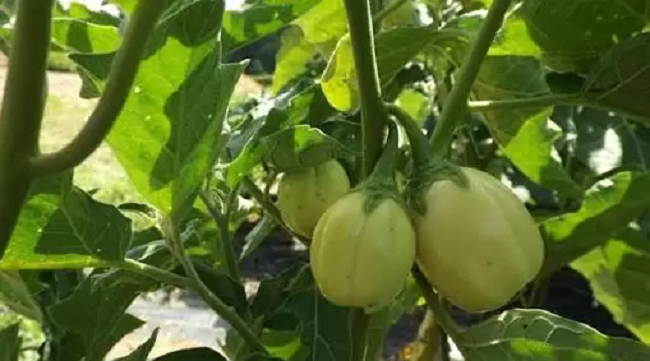Garden egg is in season, and many African societies relish it for its many health benefits. Numerous African societies also use its leaves to improve their health, including boosting low blood levels.
In a recent study in the journal, Toxicological Research, researchers offered empirical proof that garden egg leaves can act as a blood tonic for people who are pale or facing a blood shortage.
They found that the water leaf extract of garden eggs significantly enhances blood levels, particularly in terms of packed cell volume, haemoglobin, and red blood cell counts, while also being safe for consumption.
Twenty-five male Wistar rats were divided into five groups: a control group receiving distilled water, a CMS group subjected to stress for 28 days, and three groups receiving varying doses of garden egg leaf extract (200 mg/kg and 400 mg/kg) from day 15 to 28, along with a group receiving 400 mg/kg for 14 days.
In the study, garden egg leaf water extracts resulted in a significant increase in packed cell volume, haemoglobin, and red blood cell counts in both male and female rats.
Phenylhydrazine was administered to induce anaemia in the rats, allowing the researchers to evaluate the effectiveness of the extract in counteracting this condition.
The study involved several groups, including a normal control group and a negative control group that did not receive the extract.
The rats given the 400 mg/kg dose of the extract showed notable improvements after 14 days, including increases in haemoglobin, red blood cell counts, and packed cell volume. It supports the assertions made in ethnomedicine about the use of this herb to raise blood pressure.
While the group given the conventional medication (5 mg/kg of ferrous sulphate) also exhibited improvement, the African garden egg leaf extract (400 mg/kg) proved very useful in raising blood levels.
The significant increase in packed cell volume, haemoglobin, and red blood cell counts suggests that the extract may enhance red blood cell production or improve iron metabolism, which is critical in managing anaemia.
Importantly, the study reported that, even at the maximum dose of 5000 mg/kg, there were no signs of toxicity or mortality in the rats during the acute toxicity assessment. This suggests that the extract has a broad safety profile, making it a viable candidate for additional research in the treatment of anaemia.
Additionally, the extract showed protective effects on liver and kidney function, as indicated by reduced levels of liver enzymes and other parameters.
This suggests that garden egg leaf water extract may not only treat anaemia but also protect against organ damage, which is often a concern in individuals with anaemic conditions.
Also, garden egg leaf extract has the potential to be a natural treatment for depression because it can also lessen the symptoms of depression and the negative effects of chronic moderate stress (CMS) on brain function.
Read Also: NNPC reports N9.3trn petrol imports amid fuel scarcity
In a new study, researchers reported that garden egg leaf extract effectively reversed cognitive impairments and anxiety-like behaviours caused by chronic mild stress, with better efficacy observed at higher doses.
In rats exposed to mild chronic stress, the extract dramatically counteracted the detrimental effects of CMS on behaviour, especially when administered at a higher dose of 400 mg/kg in the hippocampal and cerebellar regions of the brain. The hippocampus and cerebellum are areas in the brain that are often affected in depressive states.
However, some physiological changes in the brain cells persisted, suggesting that while garden egg leaf extract can improve cognitive and emotional functions, certain structural changes may remain.
The researchers went on to suggest in the Nigerian Journal of Neuroscience that garden egg leaf extract might be a useful natural therapeutic option for treating the symptoms of anxiety and depression brought on by ongoing stress, especially for people looking for an alternative to traditional antidepressants that frequently have negative side effects.
Previous studies have established the role of antioxidants in mitigating stress and depression. This study specifically highlights the antioxidant properties of garden egg leaf, demonstrating its potential to counteract oxidative stress induced by chronic mild stress (CMS) in rats.
In West Africa, remarkably in Nigeria, where garden egg leaves or African eggplant leaves are found in extraordinary amounts, it is called Akwukwo Anyara in Igbo, and its seed is likewise called Mkpuru Anyara, Efo Igbo in Yoruba, and Ganyen Gauta in Hausa.
They are considered corrective as well as nutritious eating routines because of the healthful items that act as medicine for specific conditions like constipation, heartburn, excess weight, and anaemia, and substitutes for clinical enhancements.
Garden egg leaf or African eggplant leaves contain Vitamin B, C, potassium, and calcium, which are advantageous to human health in more ways than one. In numerous local people, it is accepted to be vital for heart health, prevents stomach ulcers, and lowers blood sugar because of its high fibre and magnesium.
